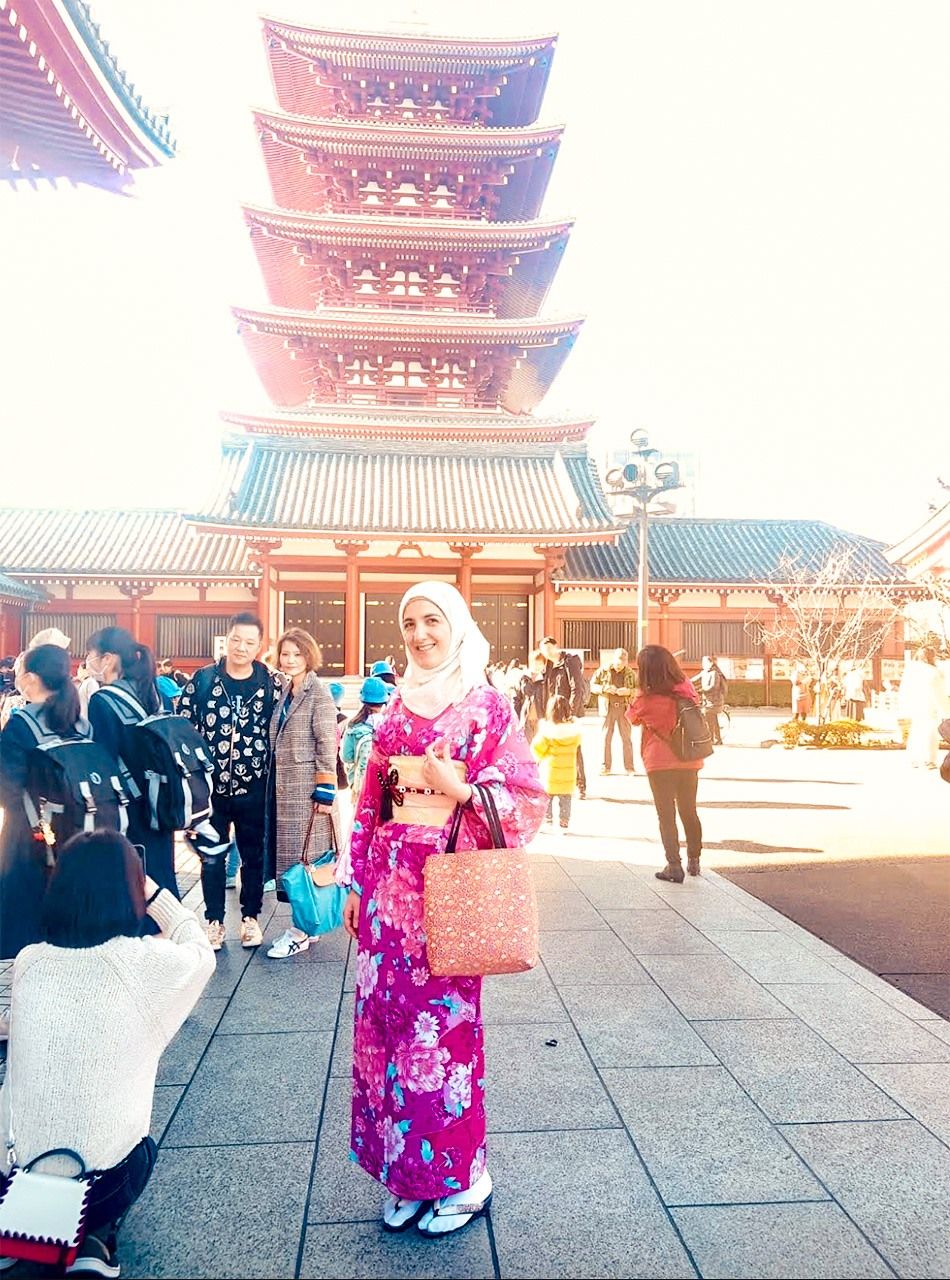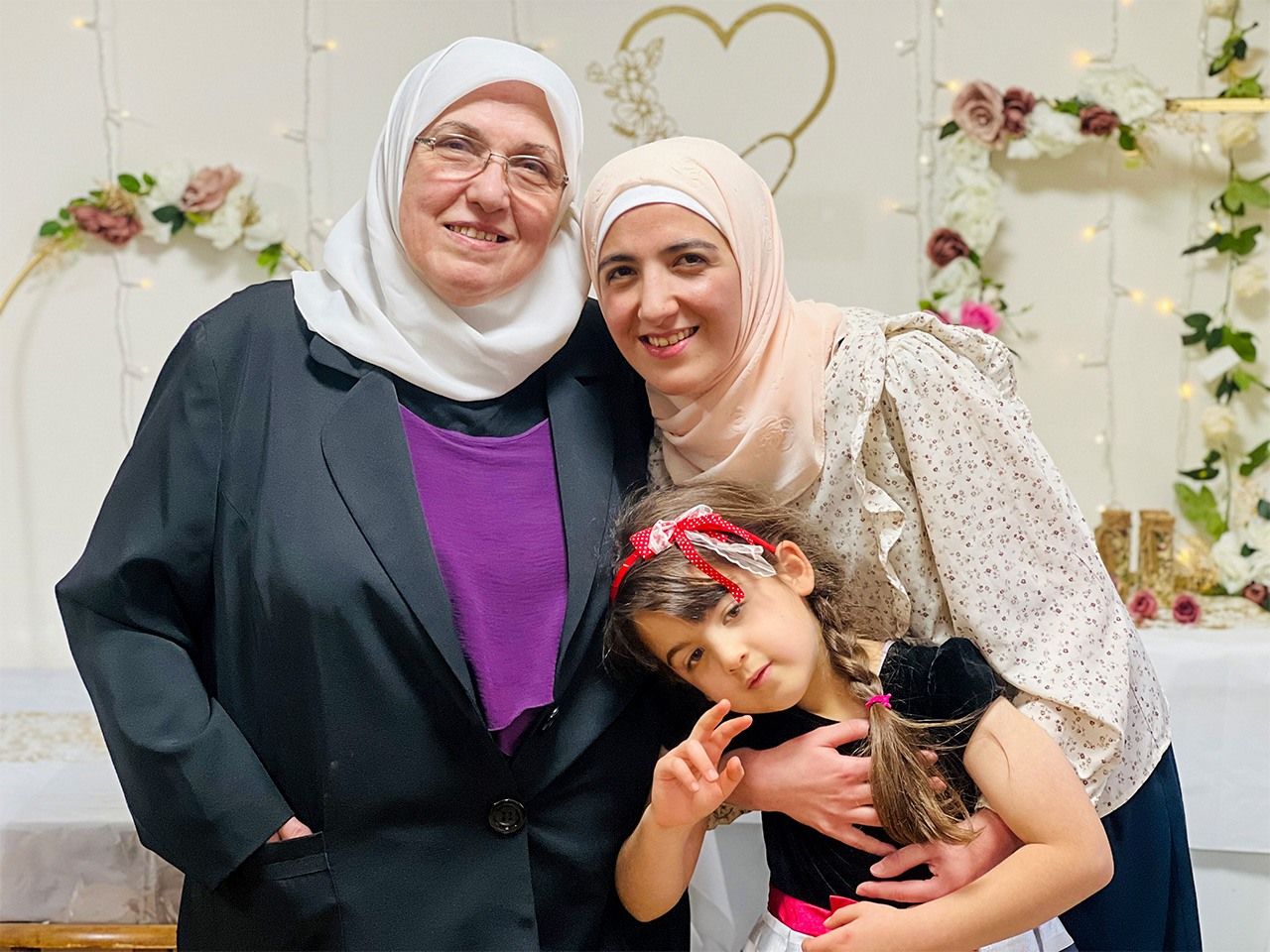
Against All Odds: Merna Airoud, the First Syrian Doctor in Japan
Health Lifestyle- English
- 日本語
- 简体字
- 繁體字
- Français
- Español
- العربية
- Русский
A Completely Unexpected Life in Japan
“I never thought I would come to Japan, and when I arrived, the only Japanese I could speak was Konnichiwa.” These are the words of Merna Airoud, who in the spring of 2022 became the first Syrian to pass the Japanese medical licensing examination. She was only the second Arab to do so, after Egyptian ophthalmologist Osama Mohamed Aly Ibrahim. Merna, born in 1990 in Aleppo, Syria, graduated top of her class from the prestigious Aleppo University’s Faculty of Medicine, earning her medical license in 2014. Like many of her peers, she planned to further her specialization in the United States or Europe, passing advanced German exams in preparation.
However, life took an unexpected turn when her husband, involved in pharmaceutical research, decided to study in Japan. “For someone who had decided on studying in Germany, it took a lot of courage to move to Japan. It was a country I had never imagined visiting, let alone starting a completely different life there,” she recalls. Despite only being able to manage basic greetings in Japanese when she arrived in October 2015, Merna set her sights on becoming a clinical physician in Japan.
An Impossible Task?
In January 2016, Merna began her research life in a cardiovascular lab at a university in Tokyo, attending Japanese language school in the mornings and heading to the university in the afternoons. As she became more accustomed to life in Japan, her desire to learn more about the language and culture grew stronger by the day.
However, doubts constantly clouded her mind. Despite seeking advice from everyone in her network and beyond—including fellow Arabs and other international medical professionals who had come to Japan—on how to become a clinician, she was consistently told, “It’s impossible,” or “You’ll definitely give up.” The major obstacle was the national medical licensing exam, which required a high level of Japanese language proficiency. Typically, foreign doctors in Japan pursue research roles that do not require a Japanese medical license. However, since childhood, Merna had dreamed of becoming a clinician who could be close to her patients.
The influence of her health-conscious father, who insisted on daily exercise, balanced meals, and visiting the doctor for even minor issues, played a significant role in Merna’s decision to become a doctor. “My father’s belief that ‘Health leads to happiness’ ingrained in me the importance of taking care of one’s health, and I wanted to contribute to others’ health and recovery,” Merna shares.
Merna’s sociable personality also made her well-suited to clinical work. “I love interacting with people. I want to be a doctor who listens to patients, eases their fears, and is always there for them.” Given her perspective, lab work didn’t fully align with her motivations, as her true aspiration was always to be on the front lines, moving through hospital wards and engaging directly with patients.

Merna during a trip to Hakone Shrine in Kanagawa Prefecture. (Courtesy Merna Airoud)
Raising a Child While Advancing in Fluency
Marina’s language studies were geared toward passing the Japanese Language Proficiency Test, which is divided into five levels, with N1 being the most difficult.
When she gave birth to her first child, she took a break from academic research and language school. However, she soon resumed her language work at home, studying Japanese while playing with her daughter during the day and tackling textbooks after putting her to bed. Merna’s determination paid off when she passed the N3 level of the JLPT, a significant achievement considering she had never encountered Japanese before arriving in Japan and was balancing her studies with childcare.

Merna at the temple Sensōji in Asakusa, Tokyo. (Courtesy Merna Airoud)
Far from congratulating herself, though, Merna kept her focus on acing the highest level, the N1. N3 is considered an intermediate level, enabling daily conversation. While passing N3 was a remarkable accomplishment, Merna knew it was just the beginning. “To become a practicing doctor, I knew I had to speak and understand Japanese as a native speaker. I had to pass N1 to even begin the paperwork for the Japanese National Medical Practitioners Qualifying Exam” she reflects.

Merna with her daughter, then still a toddler, at Heian Shrine in Kyoto. (Courtesy Merna Airoud)
The Steep Path to a Medical License
When her daughter turned two, Merna placed her in daycare three times a week and returned to Japanese language school. By this time, she was convinced that research was not her true calling and decided not to return to the lab, instead focusing on language study and gathering information on obtaining a medical license. In 2018, she passed the JLPT N2.
Afterward, she quit language school to study on her own, adjusting her schedule to fit her family’s needs. A significant support during this period was a volunteer Japanese language teacher who taught Merna twice a month. “My teacher not only supported my studies but also encouraged me constantly, teaching me about Japanese culture, customs, and traditions. Thanks to him, I was able to pass N1 in 2019,” she says with gratitude.

Merna with her volunteer Japanese language teacher. (Courtesy Merna Airoud)
Looking Ahead: A Lifetime of Learning and Service
Even after passing N1, the road to obtaining a medical license was fraught with difficulties. Merna struggled to schedule around personal and family needs.
With the National Medical Practitioners Qualifying Exam looming on the horizon, there was little time for her to savor the accomplishment. To take the NMPQE, she had to certify her eligibility in an appointment with the Ministry of Health, Labor, and Welfare; it took time to prepare the necessary documents, which had to be translated from Arabic. She failed to pass the document screening twice due to missing paperwork before finally succeeding on her third attempt.
Merna’s greatest concern was that her education at a Syrian university might be deemed insufficient, which would require her to attend three additional years of medical school and pass multiple exams. Fortunately, the review deemed her education equivalent to that of Japanese medical students, allowing her to proceed.
This qualified her to take the Japanese clinical proficiency test, held once a year for those who have studied medicine abroad. The test covers medical consultations, physical exams, and documentation, all in Japanese. Passing this test put Merna on equal footing with graduates of Japanese medical schools. In February 2022, she sat for the NMPQE and passed with flying colors.

The certificate showing that Merna passed the NMPQE. (© Merna Airoud)
A Student for Life
Reflecting on her journey, Merna acknowledges the long and challenging road she traveled, particularly while raising a young child. “Balancing studies, childcare, and housework was never easy, but my husband always supported and encouraged me and our daughter. When I lost confidence, he would say, ‘I see your success coming, and Allah will reward your hard work.’ I’m also deeply grateful to my parents in Syria, who always prayed for me and have been my role models.”

The proud doctor with her husband. (Courtesy Merna Airoud)
Merna knows that many new and different challenges await her as she practices medicine in Japan, saying with a smile, “I set out to be a doctor knowing full well that it involves lifelong study and research. My parents have always encouraged me, and even when people said what I was doing was impossible, I trusted in Allah and kept telling myself that I would never know if I could do it unless I tried. Having such a mindset enabled me to keep going and achieve my goals.”
Merna’s clinical career in Japan has just begun, and she expects to face many challenges ahead. Yet, she remains undeterred, determined to continue learning and overcoming obstacles, driven by her passion for providing compassionate, patient-centered care.

Merna with her mother and daughter in Japan. (Courtesy Merna Airoud)
(Originally published in Arabic; translated from Japanese. Banner photo: Merna Airoud outside the Fujisawa Health Center. Courtesy Merna Airoud.)
